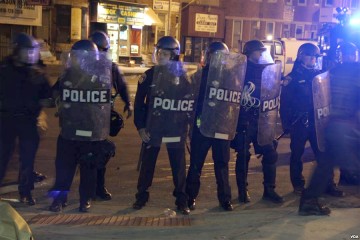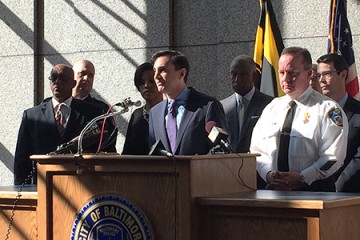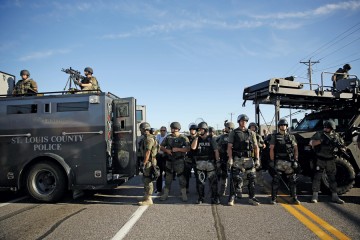The criminal justice system doesn't need reform—it requires a transformation, said Tracey Meares, a professor at the Yale School of Law who served on President Obama's Task Force on 21st Century Policing.

Image caption: Tracey Meares
In a talk delivered Monday at the Johns Hopkins Bloomberg School of Public Health, Meares noted that though violent crime rates in the U.S. have declined over the past three decades, the public's opinion of law enforcement has remained the same. Clearly, she said, public trust of police is not tied to crime reduction.
Instead, people shape their opinions about law enforcement based on how officers exercise power, she said.
"Aggressive police action can have the counterproductive result of destroying the very reservoir of trust on which communities and the policing agencies depend for proper functioning of the system," Meares said.
In other words, when it comes to reducing crime, the ends do not justify aggressive means.
Meares presented four solutions (informed by the recommendations laid out in the President's Task Force for 21st Century Policing's 2015 report) that could help rebuild the public's trust and, with it, the legitimacy of law enforcement agencies:
Public participation: Citizens want to be able to voice their perspectives when they have an encounter with the police, Meares said. In fact, people reported higher satisfaction with police encounters when they could explain their situation, even when the explanation had no effect on the outcome, she said.
Decision-making fairness: The public must believe that law enforcement acts consistently, transparently, and with a sense of neutrality and objectivity, Meares said. Decision-making fairness, she noted, must be a trait of the police department's culture and not just a trait of individual officers.
Respectful interactions: "People care a great deal about how they are treated by legal authorities," Meares said. "People want to be treated with dignity, respect, and politeness."
Motive-based trust: "People want to trust that the motivations of legal authorities are sincere, benevolent, and well-intentioned," Meares said. History and group experience can affect motive-based trust, she added. Groups who have been targeted by police throughout history, for example, are likely to have greater distrust of authorities, she said.
Public trust in law enforcement cannot be rebuilt if all four factors are not present, Meares said. For example, a polite police interaction won't help public opinion if the interaction is initiated without decision-making fairness. A polite cop doesn't cancel out a biased cop.
The good news, Meares said, is that evidence from Western democracies around the world—including the U.S.—points to the fact that people will voluntarily comply with the law when they view law enforcement as legitimate. The cost-benefit analysis of policing strategies, Meares said, points to greater success of trust-based practices than aggressive practices.
Monday's event was sponsored by the Johns Hopkins Center for Injury Research and Policy and the Center for Gun Policy and Research.
Posted in Politics+Society
Tagged law enforcement, militarization of police, police violence










